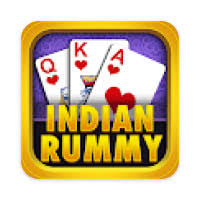Rummy Games List, a timeless and versatile card game, comes in various forms, each offering a unique twist on the classic gameplay. With its deep strategic elements and wide appeal, rummy has evolved into numerous variants that cater to different player preferences and skill levels. This article provides a comprehensive list of popular rummy games, outlining their distinct features and rules.
1. Classic Rummy
Overview: The traditional version of rummy is played with one or two standard 52-card decks and involves forming valid sets and sequences.
Rules:
- Objective: Form sets (three or four cards of the same rank) and sequences (three or more consecutive cards of the same suit).
- Gameplay: Players draw and discard cards to complete their hands.
- Winning: Declare your hand by forming at least one pure sequence and other valid sets or sequences.
2. Gin Rummy
Overview: Gin Rummy is a two-player version of the game with a focus on forming sets and sequences.
Rules:
- Objective: Form sets and sequences with a hand of 10 cards.
- Gameplay: Players draw and discard cards each turn, aiming to reduce deadwood (unmatched cards).
- Winning: Declare your hand when the total value of deadwood cards is 10 or fewer points. Going “Gin” with no deadwood cards scores additional points.
3. Indian Rummy
Overview: Indian Rummy, often referred to as 13 Card Rummy, is popular in South Asia and is played with one or two decks, including jokers.
Rules:
- Objective: Form one pure sequence and additional sets or sequences.
- Gameplay: Players draw and discard cards to build their hands.
- Winning: Declare when you have formed the required combinations. Jokers can be used as wild cards.
4. Points Rummy
Overview: Points Rummy is a fast-paced version where players aim to score the least number of points.
Rules:
- Objective: Score the lowest points by forming valid sets and sequences.
- Gameplay: Played over multiple rounds, with each round contributing to the total score.
- Winning: The game continues until a player reaches the predetermined score limit, often set at 100 or 200 points.
5. Pool Rummy
Overview: Pool Rummy is a variant with larger player pools and focuses on avoiding high scores.
Rules:
- Objective: Avoid accumulating high points. Players are eliminated once they reach a certain point threshold.
- Gameplay: Played with multiple decks, often in a larger pool of players.
- Winning: The game continues until only one player remains, or the pool ends.
6. Deals Rummy
Overview: Deals Rummy involves a set number of deals (rounds), with the objective of having the lowest cumulative score.
Rules:
- Objective: Minimize the total score over the set number of deals.
- Gameplay: Each deal has a predetermined number of rounds, with scores calculated at the end of each deal.
- Winning: The player with the lowest total score after all deals wins.
7. Kalooki (Kaluki) Rummy
Overview: Kalooki Rummy is a variant that includes specific rules for melding and discarding.
Rules:
- Objective: Form valid sets and sequences to win.
- Gameplay: Includes special rules such as mandatory melds before going out and specific scoring for card combinations.
- Winning: Declare when you have met the game’s melding requirements and have the lowest deadwood.
8. Oklahoma Rummy
Overview: Oklahoma Rummy is a variation of Gin Rummy with additional strategic elements.
Rules:
- Objective: Form sets and sequences while dealing with a varying number of cards each game.
- Gameplay: The number of cards dealt to each player varies depending on the value of the first card drawn from the stockpile.
- Winning: Declare when you have arranged your hand into valid sets and sequences.
9. Kalooki 51
Overview: Kalooki 51 is a variant of Kalooki Rummy where players need to achieve specific requirements to declare.
Rules:
- Objective: Form sets and sequences, meeting the Kalooki 51 requirements.
- Gameplay: Players must meet specific conditions, such as holding a minimum number of cards in valid combinations.
- Winning: Declare when you meet the required conditions and have the lowest points in hand.
10. Rummikub
Overview: Rummikub is a tile-based rummy game that combines elements of card rummy with tile gameplay.
Rules:
- Objective: Form sets and runs using numbered tiles.
- Gameplay: Players draw and place tiles to create valid sets and runs on the table.
- Winning: The first player to empty their rack of tiles wins the game.
Conclusion
The diverse range of rummy games provides something for everyone, whether you prefer the classic gameplay of traditional rummy or the strategic depth of its modern variants. By understanding the rules and strategies of each version, you can enhance your gameplay and enjoy the rich, engaging experience that rummy offers. So, explore the various rummy games on this list, choose your favorite, and immerse yourself in the exciting world of rummy!




